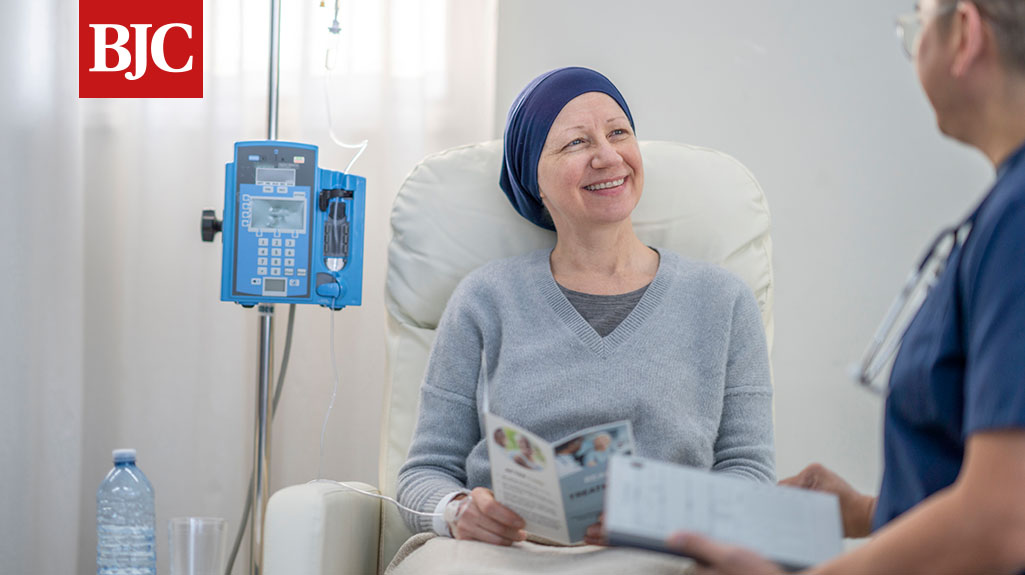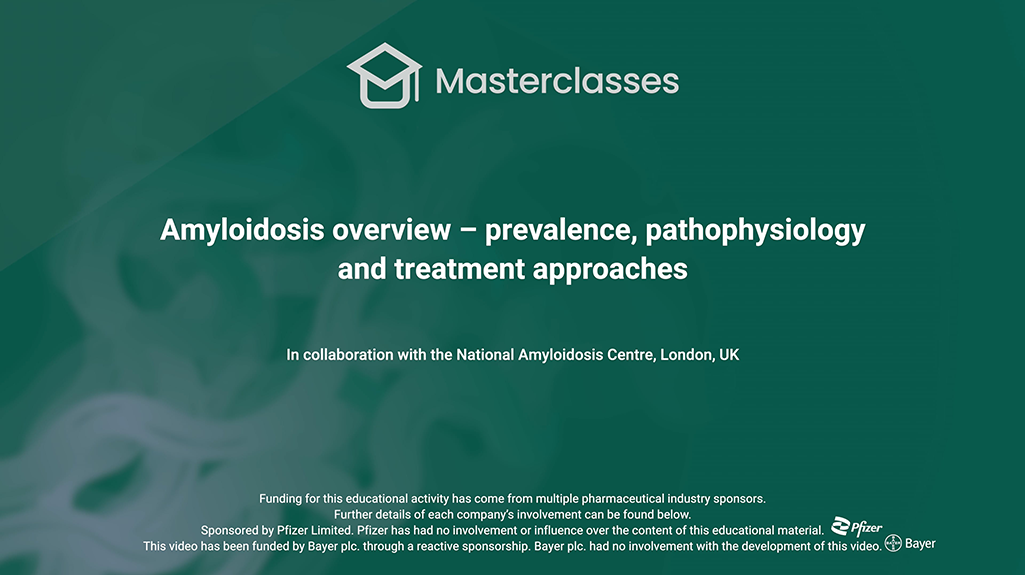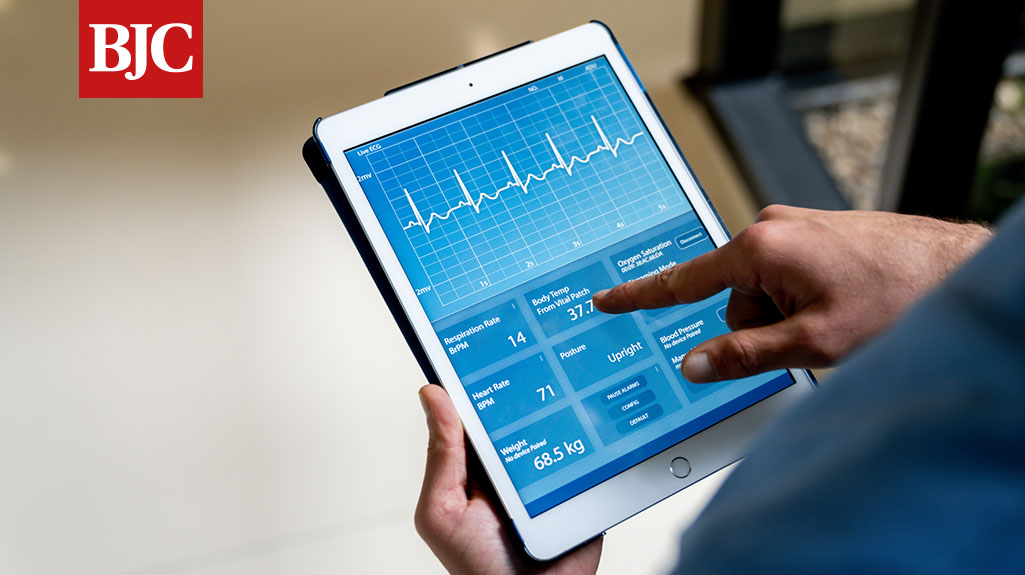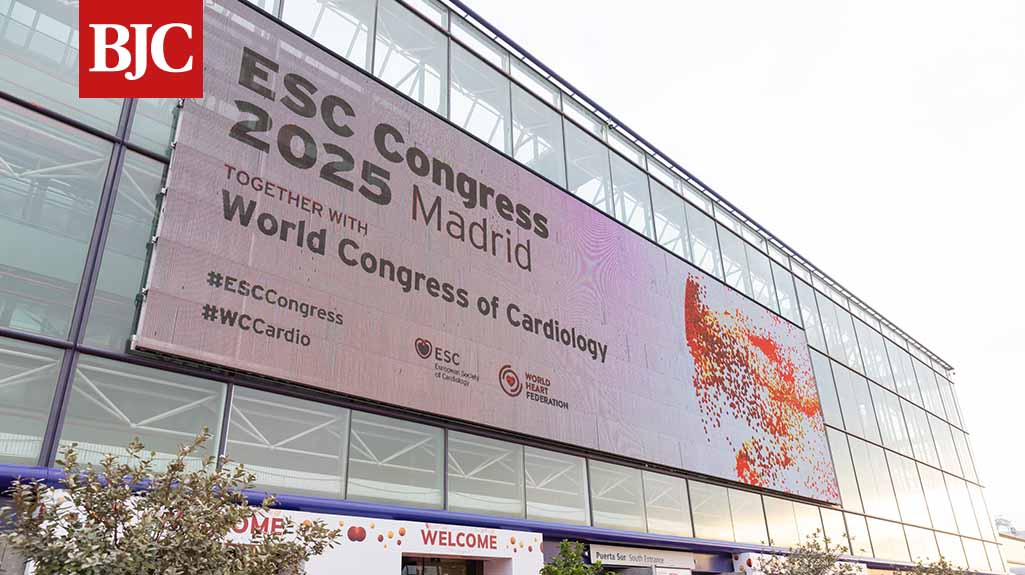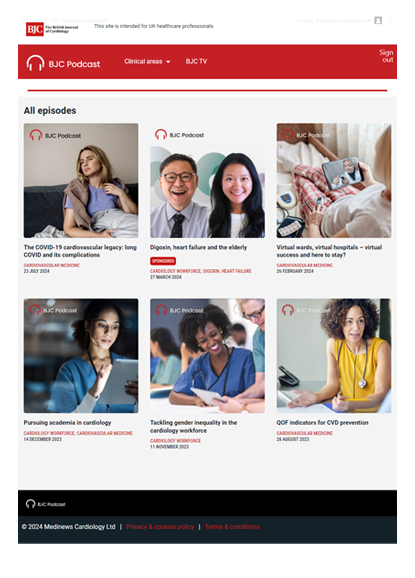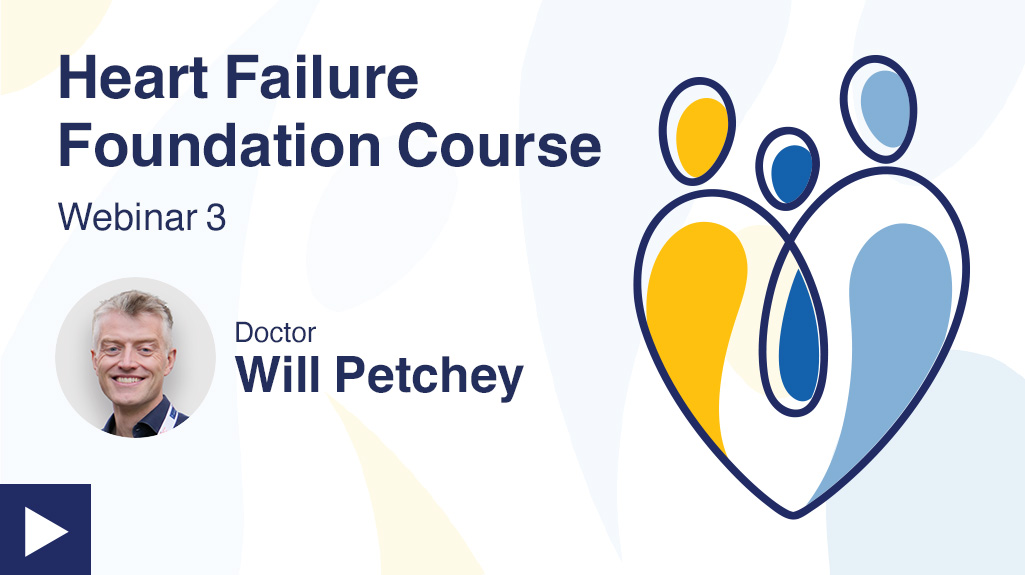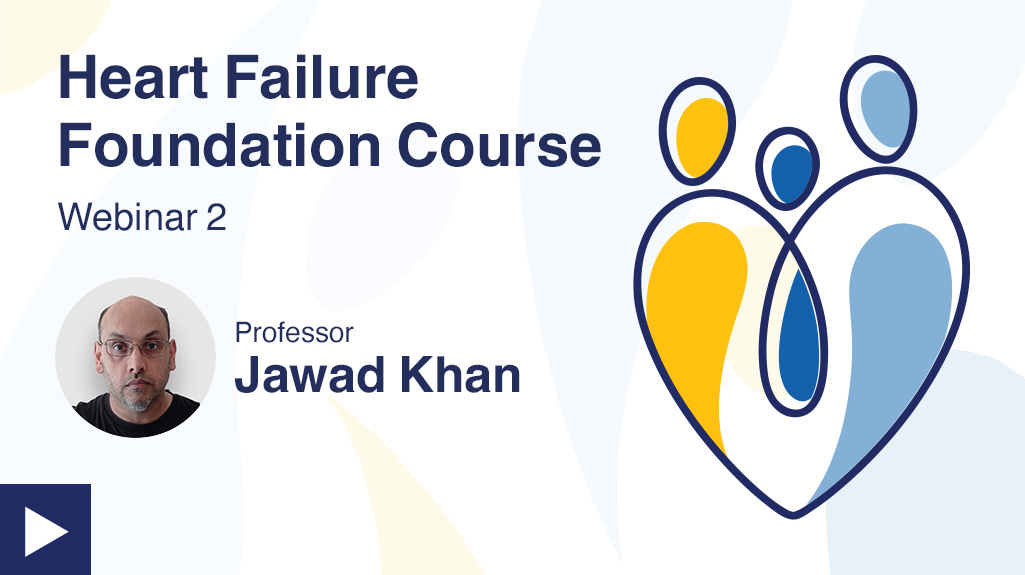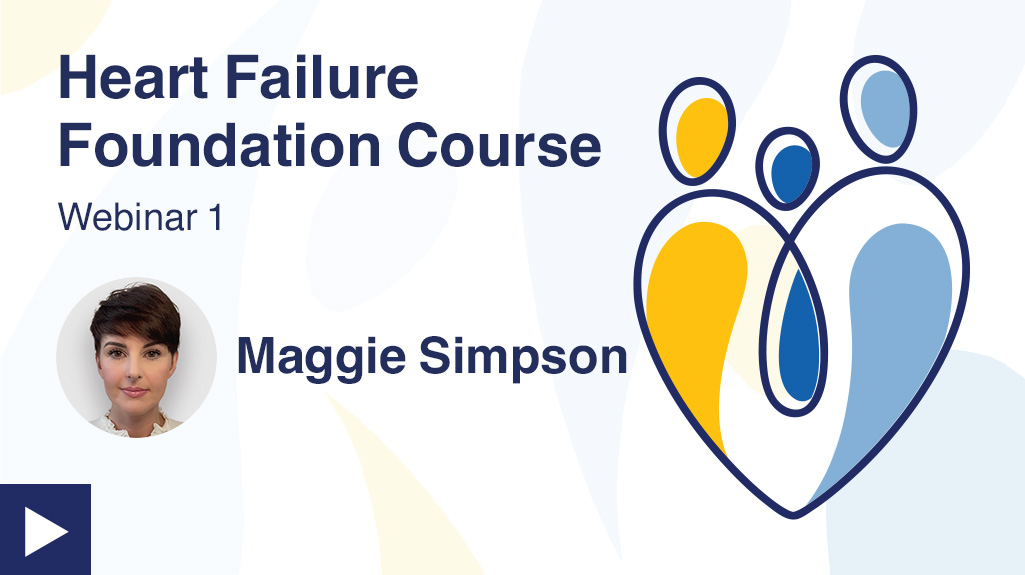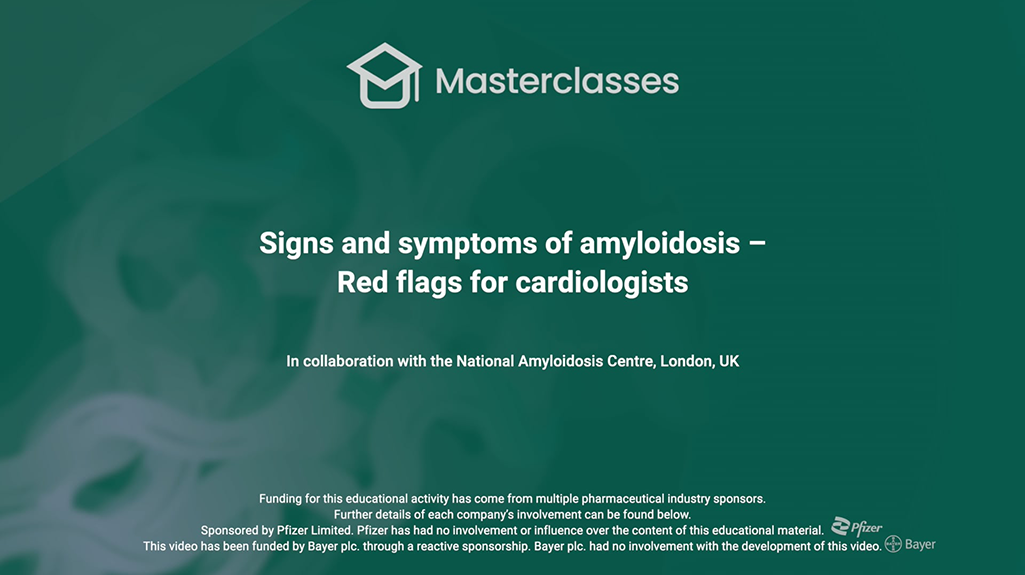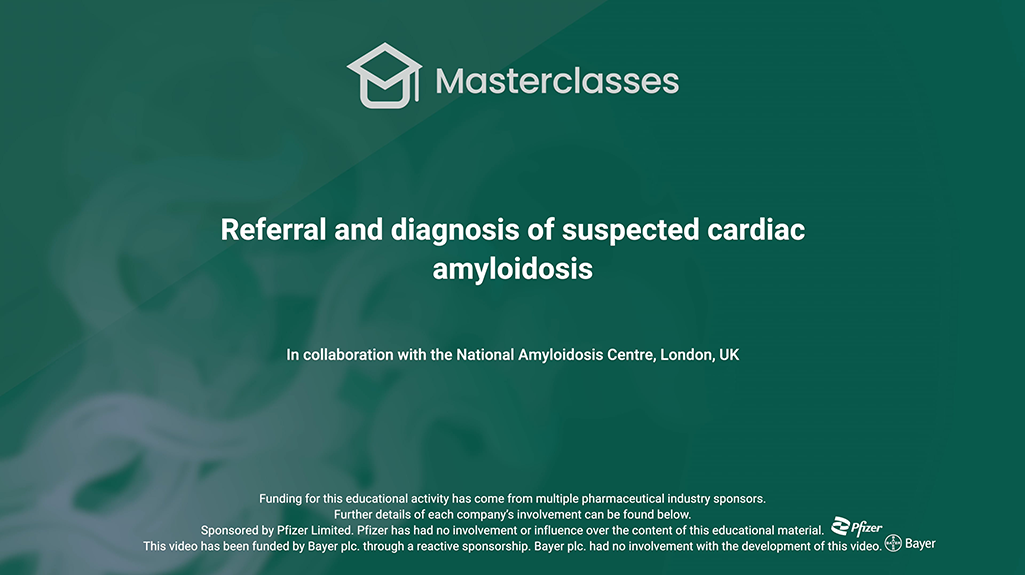- SivaTharshini Ramalingam
The increasing toxicity profile of cancer treatments has resulted in a growing demand for specialist cardio-oncology care. Listen to Dr SivaTharshini Ramalingam discuss how hospitals and community practitioners can work together to identify, treat and improve the quality of life for people experiencing cardiac dysfunction as a consequence of cancer treatments. She also explains which drugs are most commonly used, their key toxicities and reg flags for care.
This Masterclass was developed in collaboration with the National Amyloidosis Centre, London UK
Amyloidosis is rapidly gaining recognition as a previously under-diagnosed cause of cardiomyopathy and heart failure. Here, experts from the National Amyloidosis Centre – the only centre in the UK specialising in the management of the condition – provide an overview of its prevalence, symptoms and key treatment principles.
Amyloidosis is rapidly gaining recognition as a previously under-diagnosed cause of cardiomyopathy and heart failure. Here, experts from the National Amyloidosis Centre – the only centre in the UK specialising in the management of the condition – provide an overview of its prevalence, symptoms and key treatment principles.
Masterclass
Dr Sarah Hudson and Charles Lowe discuss the latest advancements in digital innovation both supporting and challenging cardiology clinicians in the UK. Topol Fellow, Dr Hudson shares her wealth of knowledge and experience as a cardiologist with Charles Lowe, who’s worked in the digital healthcare space for over 25 years.
In this fascinating conversation, we discover what is happening in cardiology clinics and what the future might hold for cardiologists. Look out for future videos covering these topics in more detail:
Dr Sarah Birkhoelzer and Dr Ahmed Alsobhi review the latest trial data revealed at this year's ESC congress and discuss the 2025 guideline updates. What does this all mean in real terms for UK clinicians?
In recent years, there has been a switch to direct oral anticoagulants (DOACs) as first-line thrombosis prevention, with fewer people started on a vitamin K antagonist, such as warfarin. This has led to an increase in number of people taking anticoagulants and, therefore, an increased risk of intracranial and intracerebral haemorrhages and gastrointestinal bleeds. Listen to Richard Buka, Clinical Research Fellow Institute of Cardiovascular Sciences at the University of Birmingham, discuss the challenges clinical teams face in the reversal of these drugs. He explores the findings of recent trials of Andexanet alfa and considers how effective these drugs really are and what it means in practice.


